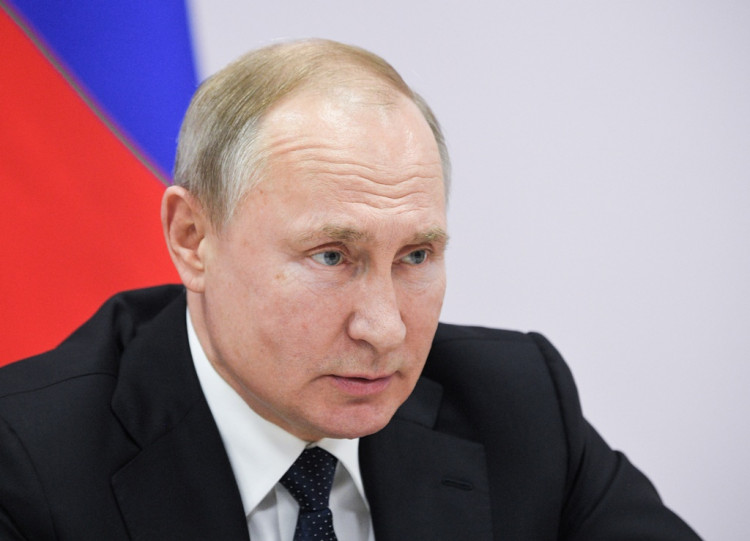Russian President Vladimir Putin's recent campaign events have been marked by an unmistakable air of paranoia, suggesting a deep-seated fear of assassination even in the company of his most "trusted" supporters.
During a campaign gathering in Moscow, aimed at bolstering his bid for re-election, the presence of a bodyguard, poised with a concealed bulletproof shield, underscored the Kremlin leader's anxiety. This shield, discreetly disguised as a briefcase, stood at the ready to unfold and protect Putin at a moment's notice, illustrating the lengths to which his security detail goes to ensure his safety.
"The Federal Protective Service officer was preparing to cover Putin with an armored shield at a specially guarded and checked meeting between him and his 'trusted persons,'" revealed an insider to the Telegram channel VChK-OGPU, highlighting the extraordinary measures taken to safeguard the Russian president.
The audience, comprising 550 individuals from various sectors including academia, journalism, and business, underwent rigorous vetting processes, including loyalty checks and extensive security screenings, to gain access to the event, as per the Daily Star. Despite these precautions, the atmosphere was fraught with tension, particularly when attendees rose to address Putin, prompting the vigilant bodyguard to edge closer to the Russian leader, prepared to spring into action.
This heightened security protocol at what was ostensibly a secure and controlled event highlights Putin's palpable concern for his personal safety as he navigates the complex landscape of Russian politics and international relations. The meticulously vetted group of supporters, handpicked for their loyalty, underscores the Kremlin's cautious approach to managing both public appearances and internal dissent.
As Putin campaigns for what is widely anticipated to be a guaranteed victory in the forthcoming elections, the elaborate security measures and the atmosphere of distrust even among allies paint a picture of a leader increasingly isolated by his own apprehensions. With all opposition candidates either sanctioned by Putin or silenced through imprisonment or exile, the electoral process appears to be little more than a formality to reaffirm Putin's grip on power.
The parallels drawn between Putin's current state and historical instances of leaders besieged by fears of betrayal or harm are striking. The Russian president's reliance on an armored shield, even in a room filled with vetted supporters, speaks volumes about the siege mentality that seems to have taken hold within the upper echelons of the Russian government.
Observers and insiders alike have noted the orchestrated nature of the upcoming elections, with reports suggesting that the Kremlin expects an overwhelming victory for Putin, securing his position until at least 2030. This orchestrated political theater, however, does little to mask the underlying tensions and the specter of dissent that looms over Putin's administration.
Notably, prominent opposition figures like Alexei Navalny and Vladimir Kara-Murza find themselves silenced, either through incarceration or enforced exile, highlighting the Kremlin's relentless crackdown on dissent. Navalny's ongoing imprisonment on charges widely regarded as politically motivated, and Kara-Murza's recent sentencing, exemplify the perilous path that awaits those who dare to challenge Putin's regime.
In this climate of heightened security, veiled threats, and political maneuvering, Putin's re-election campaign becomes a stark emblem of the broader challenges facing Russia's political landscape. The intricate dance of power, loyalty, and fear that characterizes Putin's approach to governance offers a revealing glimpse into the machinations of a leader determined to maintain control at all costs.






